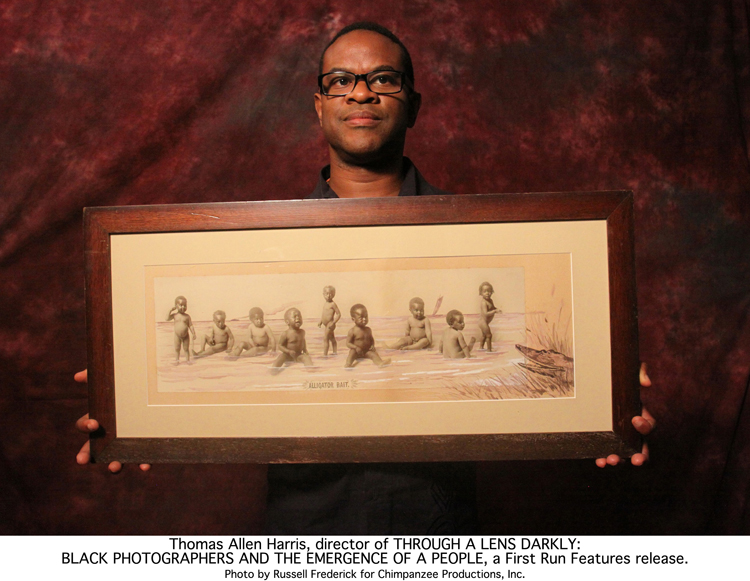There’s a feeling that you get from a photograph.
Multiple feelings. These stem from emotional or physical connections to the subject, to the setting, angle, tone, imagination, and even size of the photo. This is regardless of it being from 100 years ago or one day ago, on paper or on a digital screen. Yet, one can imagine that for most people it is how the photo reflects who you are that brings the most distinct feelings. However, when dealing with the African-American and African diaspora, the problem is that the way many of us perceive ourselves is defined by the hegemonic forces of colonialism and post-colonial means of control – done in its strongest negative form through the image.
Combating those negative portrayals is the family album – a piece of home that, if one is fortunate enough to have a keeper of those images, shows you the good and bad of who you are and where you come from, and can even lay groundwork toward the answers you may need about where you need to go in life. My father, I am proud to say, is that keeper of images for my huge family, but for director Thomas Allen Harris it was his maternal grandfather, Albert Sydney Johnson, Jr. who did so and inspired both he and his multi-discipline artist brother Lyle Ashton Harris to understand the power of making and sharing images and the pride that one can develop from doing so.
Who would make visible the invisible?” – Thomas Allen Harris
In his latest documentary, Through a Lens Darkly: Black Photographers and the Emergence of a People, Harris traces his family legacy once more (as he did in his first two films) to frame how Black photographers wrestle with double-consciousness and the ‘otherness’ of Western life while creating their images, and traces the history behind Black images in history and popular culture to show the troubling ways the Black body has been used as a commodity in American society.
Through a Lens Darkly is also inspired by Deborah Willis’ photography book Reflections in Black. Willis, a producer on the film who also currently serves as the Chair of the Department of Photography and Imaging and New York University’s Tisch School of the Arts, is heavily featured throughout the film as she has nurtured the careers of numerous now-famous Black photographers, including Harris himself. She has her finger on the pulse of the Black photographic image and helps reveal truths about the history of African-Americans behind the lens. There are profiles throughout of photographers you may have heard of, like Roy DeCarava, Thomas Van Der Zee, Carrie Mae Weems, Jamel Shabazz, Renee Cox, and of course Gordon Parks, but Harris also focuses on others like P.H. Polk, who headed up the Tuskegee Institute’s illustrious photography department, and his instructor C.M. Battey.
How Black luminaries like Sojourner Truth and Frederick Douglass used photography to show their distinction, but also raise funds for their projects, is also profiled alongside the savagery of lynching photos and how callous the White townspeople and such remained while carrying through such terrible acts. That Black photographers were able to flip that use of the photographic image (lynching photos were often even used as postcards) to use their skills as a tool for social change is telling to the camera’s power.
The film works a lot with opposites, but none more so than the differences between Harris’ father, Thomas Allen Harris, Sr. – who had barely any photographs taken of him in his lifetime – and that once again of his grandfather Albert who had and created an overwhelming amount and was able to see and deal with the world in a more fulfilling way. This is among the most poignant realizations that Harris faces in the film, and it is with these memories, told through voiceover over family and extended family pictures and those of others, that makes the film more than just personal – it is a revelation and a reflection of all of us.
Through a Lens Darkly (2013, 92 mins.), also produced by Ann Bennett and featuring music by Vernon Reid (of the band Living Colour) and Miles Jay, will have a two-week engagement from August 27 through September 9 at Film Forum, 209 W. Houston St. in New York City, with screenings daily at 12:45, 2:50, 5:10, 7:20, 9:30. Go to the Film Forum website for more details. The film will also travel to Chicago, where it will play at the Gene Siskel Film Center in Chicago, starting on September 19 through the 25th.

Related Links:
- Chimpanzee Productions – Thomas Allen Harris’ production company
- Reflections in Black: A History of Black Photographers 1840-present (2002) by Deborah Willis



